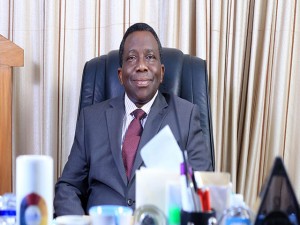Adewole, who was represented by Director of Family Health in the Federal Ministry of Health, Dr Wapada Balami, disclosed that the government spends an estimated N480 billion in the prevention and treatment of malaria every year in the country. Yet, he said, many citizens of the country die needlessly of the disease every year while many households lose income because they are too ill from malaria to go to work. Not only that, several children are out of school on account of malaria, and a good number fail to attain their optimal potential in life as a result. These happen because, according to the minister, many people in the country accessing available interventions recommended for fighting the disease. “For example, the use of Long Lasting Insecticidal Nets (LLINs) has been confirmed to be very effective in preventing malaria, however most Nigerians are recalcitrant in its use.
Between 2010 and 2013, the proportion of persons who slept inside LLINs the night before actually dropped from 23% (MIS 2010) to 13% (NDHS 2013), in spite of the 80% coverage attained through mass campaign with over 70m LLINs. “This is unfortunate because majority of people have to use the nets for it to be optimally useful to the society. Indeed if 80% of Nigerians use LLINs correctly and consistently, it is possible to break transmission of malaria and set us on the path to the desired malaria free Nigeria,” the minister said. He particularly accused pregnant mothers in the country for missing the opportunity provided by improved antenatal attendance to protect them and their unborn babies from malaria through Intermittent Preventive Treatment in Pregnancy, IPTp.
Experts at another forum, a symposium in commemoration of the World Malaria Day, organised by the Nigerian Institute of Medical Research (NIMR), in collaboration with Malaria Society of Nigeria, tagged ‘End Malaria for Good’ agreed with the minister. In a presentation, a representative of the World Health Organization (WHO), Dr. Tolu Arowolo, disclosed that no fewer than 131,400 (30%) of the 438,000 global malaria deaths occurred in Nigeria last year, from the World Malaria Report, 2015. According to her report, the 2015 malaria survey showed that 27 per cent of Nigerians (45,900,000) have malaria parasites with the highest occurrence in the north. Giving the malaria prevalence by zone, she said North West has the highest malaria cases of 37 per cent, followed by North Central and North East, with 32 per cent and 26 per cent occurrence respectively. Also, she said South South has 19 per cent, South West 17 per cent and South East 14 per cent.
Dr. Arowolo, said malaria in Nigeria is a public health problem, with pregnant women and children being the most vulnerable. She explained that malaria if not treated early can progress to severe cases and death. “Based on this, we are emphasizing on prompt treatment of positive persons using the recommended ACT. We are emphasizing on accurate and timely diagnosis either through the Rapid Diagnostic Test (RDT) or microscopy. For severe malaria, we recommend the IV Artesunate, in area of high and stable transmission, we recommend IPT in pregnancy and infancy”, she said. While describing the statistic of Nigerians with malaria parasite (about 27% of Nigerian population) as frightening, Head of Malaria Research Program in NIMR, Dr. Sam Awolola, said government need to create an enabling environment for malaria control. “Most of our researches are funded by external bodies.
Government need to own the research by putting in the right infrastructure and human capacity to carry out research”, he said. In his speech, the Director General, NIMR, Prof. Innocent Ujah, expressed concern over the latest national malaria report which indicates that malaria still account for over 60 per cent of outpatient visit, 25 per cent of infant death, 30 per cent of all under-five deaths and 11 per cent of maternal mortality annually. “Based on these figure, we are concerned as a research institution that a lot still need to be done to end malaria.
So far, NIMR has maintained the National malaria DTET sentinel site in south west Nigeria, TB and HIV ISO certified reference centres as repository for Nigerian TB and HIV isolates. We also have strong link with stakeholders in malaria vector control locally and internationally. “In the last couple of years, NIMR, malaria research competitive advantage has been on drug efficacy therapeutic test and research on mosquito vector control. A key area for our malaria research in the coming year is to demonstrate the feasibility of malaria elimination using integrated intervention approach in partnership with Sysmex-partec”, he added.
Source: National Mirror

 With about 45.9 million Nigerians, (27%) of the population, including pregnant women and children harbouring the malaria parasites in their blood and at the risk of severe morbidity and death from the disease, the Minister of Health, Prof Isaac Adewole has advanced reasons why malaria has continued to thrive in the country, defying potent control measures designed to check its menace.
With about 45.9 million Nigerians, (27%) of the population, including pregnant women and children harbouring the malaria parasites in their blood and at the risk of severe morbidity and death from the disease, the Minister of Health, Prof Isaac Adewole has advanced reasons why malaria has continued to thrive in the country, defying potent control measures designed to check its menace.




